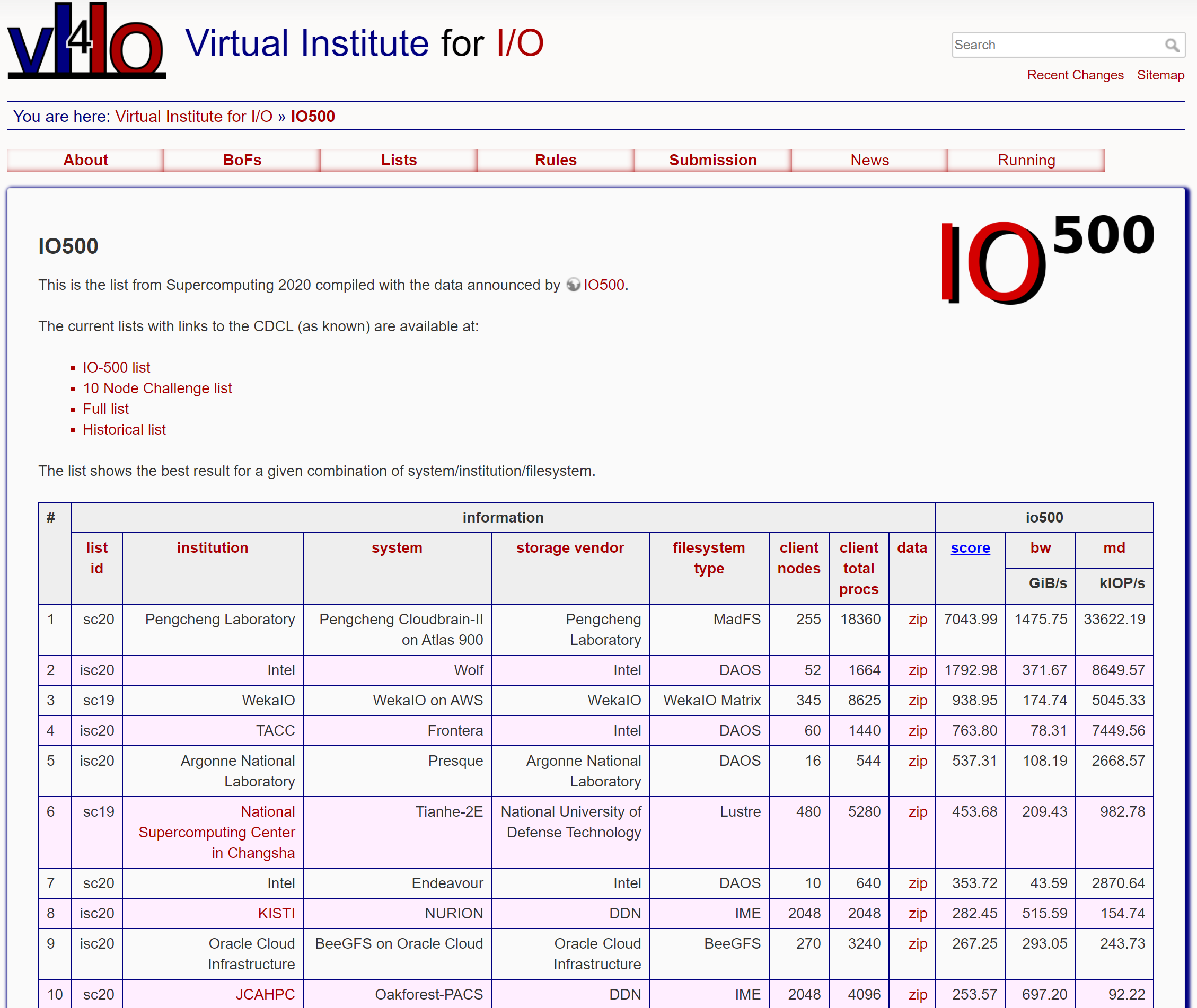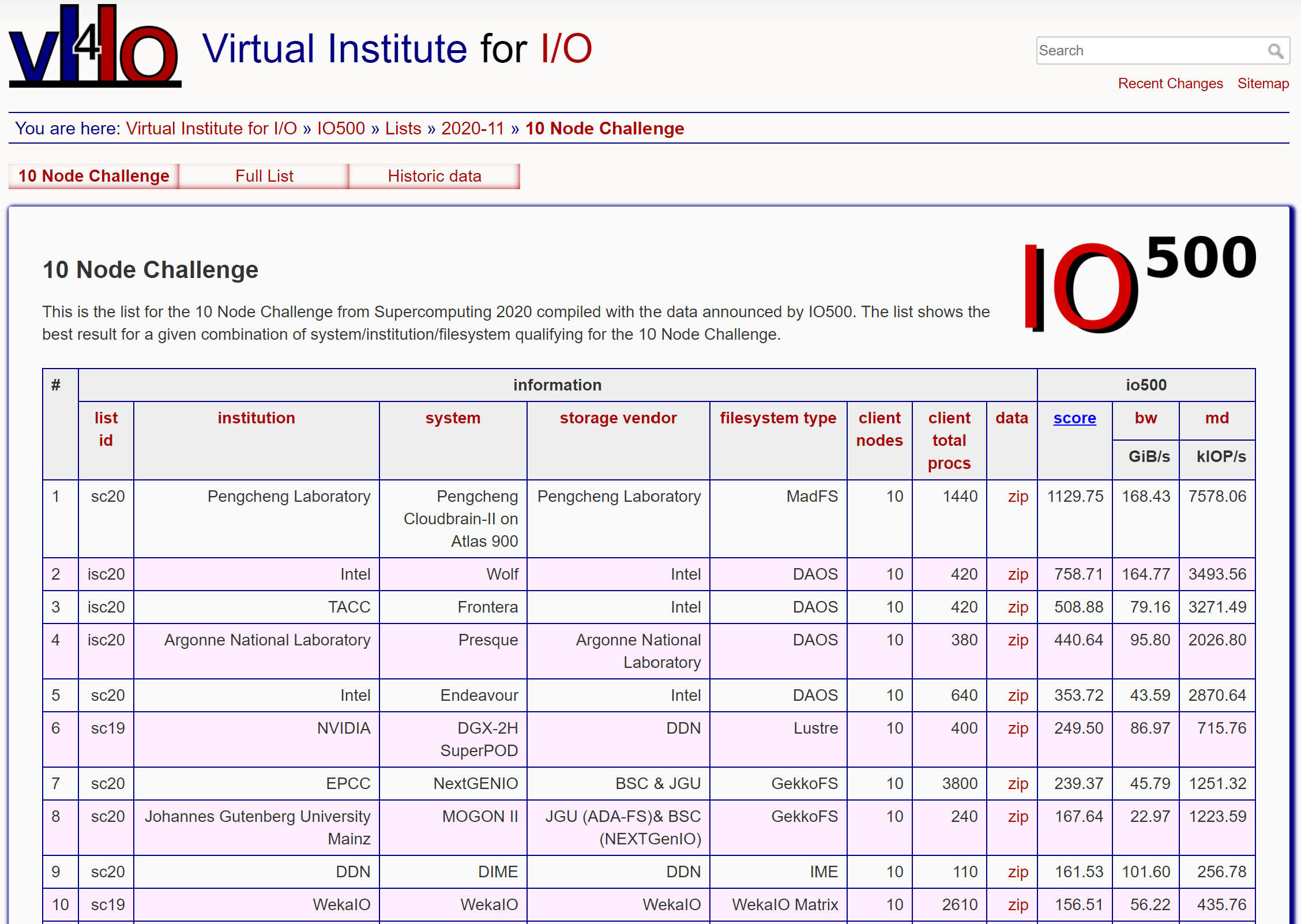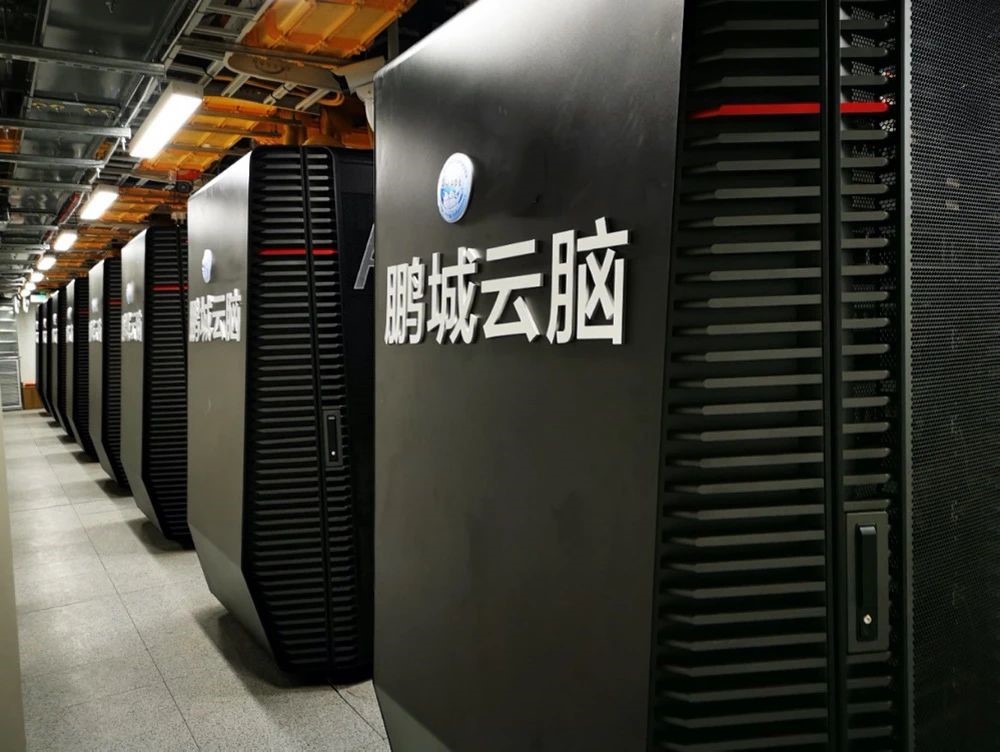MadFS, a supercomputing burst buffer file system developed by the Department of Computer Science’s storage team, has ranked first in both the full IO500 list and the 10-node list tests, with scores of 7043.99 and 1129.75 respectively.
The system was tested on Pengcheng Cloudbrain II of the Pengcheng Lab in Shenzhen, China, on November 19. Pengcheng Cloudbrain II, a high-performance computer-based system on Huawei Kunpeng 920 architecture, which started its trial operation in October 2020, utilizes MadFS for its storage system.

Top 10 on the full IO500 list
MadFS has a few innovative technologies to improve its overall performance, such as Rust-based high scalable concurrent access, and large granularity data cache and kernel bypass, specially designed zero-copy RPC.
The core team behind MadFS’s development includes associate researcher Kang Chen, Professors Yongwei Wu, Wenguang Chen and Weimin Zheng (Member of CAE), and graduate students Runji Wang, Hanyang Mao, Yiyuan Liu and Shengqi Chen from the Department of Computer Science.

Top 10 on the 10-Node list
Tsinghua University, Pengcheng Lab and Huawei Technologies Co., Ltd. jointly conducted the IO500 test, an extreme test of the hardware and software system performance. The team overcame the stringent epidemic prevention and control requirements, short development and testing time and many other difficulties, achieving good results.
The IO500 is one of the most influential global rankings of storage performance in the field of high-performance computing, and includes two major parts: data bandwidth BW (GiB/S) and metadata performance MD (KIOP/S), with the total score obtained by taking the geometric mean of the scores. In the field of HPC computing, not only is CPU computing power important, but also the data transmission of the IO system is a bottleneck. Starting from November 2017, the IO500 list is published bi-annually at the top conferences in HPC, SC in the US, and ISC in Germany.

Pengcheng Cloudbrain II of Pengcheng lab
The High Performance Computing Technology Institute of the Department of Computer Science has been focusing on the development of high-performance storage systems for many years, and has developed several storage systems such as TH-MSNS, MeePo and TStor. The team of "E-Class High Performance Computer System Architecture" in the institute was established in May 2016, with the main research direction of computer architecture and system software. A series of influential pieces of research work has been carried out, mainly in the fields of storage, brain-like computing, big data processing, and high-performance computing. The MeePo storage system won Second Prize for National Technology Invention in 2015. The TStor storage system won the Development Achievement Award of China's Specialized Storage Industry from the China Computer Industry Association in 2019.
Source: Department of Computer Science and Technology
Editors: Guo Lili, Sangeet Sangroula, John Olbrich



